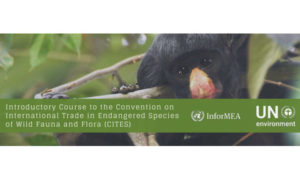Nouvelle
International Trade and the Environment in Geneva

Mise à jour: 05 Apr 2024
Trade-related measures aimed at protecting and preserving the environment are fundamental in achieving the Sustainable Development Goals of the United Nations. These measures can provide guidance and conditions to avoid the misuse of the environment and protectionism.
Trade, Environment and the SDGs
The 2030 Agenda for Sustainable Development recognizes international trade as an engine for inclusive economic growth and poverty reduction, and an important means to achieve the Sustainable Development Goals (SDGs).
Removing barriers to trade in green goods and services could add further momentum to the clean energy transformation unfolding right before us. Adam Wolff, Deputy Director-General of the World Trade Organization (WTO)
International trade has a critical role to play in environmental protection and the effort to mitigate climate change. According to Adam Wolff, trade policies are powerful tools to increase resource efficiency, scale-up investment in clean and resilient infrastructure, and accelerate climate-friendly innovation. They also unlock the USD 26 trillion in market opportunities that would result from bold climate action by 2030.
The WTO indicates that renewable energy, solar photovoltaic and wind power have become the cheapest sources of electricity in many markets. In addition, new renewable power capacity has outpaced new fossil fuel power capacity for the past seven years. In 2019 alone, renewables accounted for nearly three quarters of new power capacity globally. Furthermore, employment in this sector, which reached 11 million jobs worldwide in 2018, is expected to quadruple by 2050, while jobs in energy efficiency and related areas could grow by another 40 million.
According to the International Trade Centre (ITC), global concern about environmental issues is also driving a growing market for sustainably sourced natural resource based products. Conscious consumers are demanding more evidence of production supporting “fair” and “ethical” practices in the value chain and, globally, this market is worth around USD 50 billion. The certified natural resource based product market is driving reductions in poverty as production is often labour intensive and premium prices reach smallholder producers who make up the bulk of the rural poor. The trade is also generating environmental benefits like carbon sequestration in soils and timber, forest preservation, decreased pesticide use and net biodiversity gains.
In wildlife, the Convention on International Trade in Endangered Species of Wild Fauna and Flora (CITES), aims to ensure that international trade in specimens of wild animals and plants does not threaten their survival. There are several appendixes listing different species and their trade regulations.
The Role of Geneva
World Trade Organization (WTO)
Through its goals, rules, institutions and forward-looking agenda, the World Trade Organization (WTO) provides an important means of advancing international environmental goals. The Trade and Environment Committee (CTE) of the WTO is the standing forum dedicated to dialogue between governments on the impact of trade policies on the environment, and of environment policies on trade. Under the Doha Development Agenda, the regular committee is also looking at the effects of environmental measures on market access, the intellectual property agreement and biodiversity, and labeling for environmental purposes. In this context, a series of Ministerial Statements on environmental issues – specifically on trade and environmental sustainability, plastic pollution and fossil fuel subsidies – were launched in December 2021.
In June 2022, the 12th WTO Ministerial Conference (MC12) marked a important milestone, as governments recognized the important role of multilateral trade to address environmental challenges. Members also adopted an unprecedented agreement on fisheries subsidies after more than twenty years of negotiations.
For the Agreement to enter into force, two-thirds of WTO members must formally accept the amendment Protocol to insert the Agreement on Fisheries Subsidies into Annex 1A of the WTO Agreement, by depositing an “instrument of acceptance” with the WTO. As of March 2024, 72 WTO members formally submitted their acceptance of the agreement: Albania, Australia, Barbados, Belize, Botswana, Brunei Darussalam, Cabo Verde, Canada, Chad,Chile, China, Côte d’Ivoire, Cuba, Dominica, European Union, Fiji Gabon, Haiti, Hong Kong (China), Iceland, Japan, Korea (Republic of), Macao (China), Malaysia, New Zealand, Nigeria, Norway, Peru, Philippines, Rwanda, Saint Lucia, Russia, Saudi Arabia, Senegal, Seychelles, Singapore, South Africa, Switzerland, The Gambia, Togo, Türkiye, Ukraine, United Arabs Emirates, United Kingdom,United States and Uruguay
Information for members on how to accept the Protocol of Ammendment can be found on the WTO website.
Convention on International Trade in Endangered Species of Wild Fauna and Flora (CITES)
The Convention on International Trade in Endangered Species of Wild Fauna and Flora (CITES) is is an international agreement between governments. Its aim is to ensure that international trade in specimens of wild animals and plants does not threaten their survival. Because the trade in wild animals and plants crosses borders between countries, the effort to regulate it requires international cooperation to safeguard certain species from over-exploitation. CITES accords varying degrees of protection to more than 37,000 species of animals and plants, whether they are traded as live specimens, fur coats or dried herbs. In addition, CITES has been among the conservation agreements with the largest membership, with 183 Parties.
International Trade Centre (ITC)
Established in 1964, the International Trade Centre (ITC) is the joint agency of the WTO and the UN and is the only development agency that is fully dedicated to supporting the internationalization of small and medium-sized enterprises (SMEs). The Trade and Environment Programme (TEP) of ITC strengthens the capacity of SMEs in developing countries to compete in environmental markets and to overcome barriers that might result from environment-related standards. The programme also addresses challenges relating to climate resilience and biodiversity loss. ITC provides analysis and support in different global value chains including agri-food, natural products, fibres and leathers.
ITC’s Trade for Sustainable Development (T4SD) is a partnership-based programme which helps businesses, regardless of their position in the value chain, chart their path to more sustainable trade by better understanding the sustainability initiatives landscape and to connect with business partners. T4SD’s new platform, Sustainability Map, also integrates the already well-established tools such as Standards Map and SustainabilityXchange to the new interconnected modules.
ITC also works to boost Fairtrade and environmental exports of developing countries, including exports of cultural, ethnic and organic products. ITC supports biodiversity, enables exporters to adapt to climate change and targets increased use of green technologies.
United Nations Conference on Trade and Development (UNCTAD)
The United Nations Conference on Trade and Development (UNCTAD) is a permanent intergovernmental body established by the United Nations General Assembly in 1964. UNCTAD’s work on harnessing international trade in promoting sustained growth and inclusive development includes as a key aspect, support to developing countries in taking advantages of emerging opportunities for trade associated with the protection, promotion and preservation of the environment and sustainable development objectives generally, while minimizing potential adverse impacts. This work is carried out by the Trade, Environment, Climate Change and Sustainable Development Branch of the Division on International Trade and Commodities.
Since its launch by UNCTAD in 1996, the BioTrade Initiative has been promoting sustainable BioTrade in support of the objectives of the Convention on Biological Diversity. UNCTAD is currently implementing the Global BioTrade Programme: Linking trade, biodiversity and sustainable development with the support of the Swiss State Secretariat for Economic Affairs SECO. The objective of this four-year programme is to provide key stakeholders with the ability to size and capitalize on trade opportunities from linking biodiversity and sustainable development, thereby advancing the implementation of the SDGs, as well as the Aichi Targets and the Post Aichi framework.
United Nations Economic Commission for Europe (UNECE)
The United Nations Economic Commission for Europe’s (UNECE) major aim is to promote pan-European economic integration, including on aspects related to trade and sustainable development. UNECE initiatives at this nexus include support to the garment and footwear sector to improve traceability and sustainability, harnessing trade and economic cooperation for circular economy, and implementation of the sustainable trade and circular economy principles in SPECA countries.
United Nations Environment Programme (UNEP)
The Resources and Markets Branch of the United Nations Environment Programme (UNEP) works to accelerate the transition to resource-efficient and sustainable economies. It engages with governments in their transition to inclusive green economies, fosters partnerships with business and industry for cleaner production and green investments, influences consumer information and choice for sustainable lifestyles, and strengthens and communicates the knowledge and scientific base for resource efficiency and sustainable consumption and production.
The Economic and Trade Policy Unit conducts research and provides capacity building support and advisory services to enable the transition to inclusive and green economies. The unit analyzes the roles of fiscal, trade, and industrial policies in enabling an economic transformation.
One of the work streams of the unit is the Environment and Trade Hub, serving as the overarching delivery mechanism for UNEP’s work on trade. Through research, capacity building and policy advisory services, the Hub provides tailored support to countries seeking to leverage trade and investment as vehicles for achieving the SDGs and their Paris Agreement commitments.
Forum on Trade, Environment & the SDGs (TESS)
The Forum on Trade, Environment & the SDGs (TESS) is a partnership of the Graduate Institute and UNEP, which core mission is to promote multilateral dialogue and action on trade policies that address urgent global environmental crises and advance progress on the UN Sustainable Development Goals (SDGs). It aims to catalyse policy action across the trade, environment and sustainable development communities through a versatile, needs-driven and outcome-focused toolbox of activities. Mandated to “connect, inform, analyse and empower”, the work of TESS will combine public-facing events and policy briefs; expert and stakeholder roundtables; and off-the-record consultations key to supporting international policymaking processes.
International Institute for Sustainable Development (IISD)
The International Institute for Sustainable Development (IISD) is an independent think tank based in Canada and Geneva working to create a world where people and the planet thrive. Its experts offer practical guidance to help authorities choose the right system of electricity generation, reduce consumption of fossil-based transport fuels, and implement international climate change commitments. The IISD Global Subsidies Initiative (GSI) is widely recognized as a world-class leader in the quantification, evaluation, and reform of subsidies.
Geneva Trade Platform
The Geneva Trade Platform is a not-for-profit organization based at the Graduate Institute’s Centre for Trade and Economic Integration. The platform is a hub, designed to bring people, ideas, and resources together to address global challenges through better informed, better supported and more inclusive trade policy.
Negotiations
WTO
At the Doha Ministerial Conference in 2001, negotiations on fisheries subsidies at the WTO were launched with a mandate to clarify and improve existing WTO rules. The adoption of the SDGs in 2015 and of a negotiating mandate in 2017 gave renewed urgency to the discussions, and left the WTO with the task of securing an agreement by 2020 on disciplines to eliminate subsidies for illegal, unreported and unregulated fishing and to prohibit subsidies that contribute to overcapacity and overfishing, with special and differential treatment for developing and least developed countries. After more than twenty years of negotiations, WTO members reached an landmark agreement at MC12 in Geneva in June 2022. Member States are now discussing to initiate a second round of negotiations to further discipline harmful fisheries subsidies.
CITES
Animal and Plants Committee
The Convention on International Trade in Endangered Species of Wild Fauna and Flora Plants Committee convened in Geneva for its 26th meeting (CITES AC26), from 5 to 9 June 2023. Items on the agenda included a strategic approach on CITES and Forests, preparation for the implementation of upcoming projects, and advancing the Review of Significant Trade (RST). It is to be noted that the listings of plant species in CITES Appendices have been steadily increasing in recent years and, in particular, those of tree species including those considered commercially important. Today, the number of plant species whose international trade is regulated by CITES is more than 34,000, of which 800 are tree species.
→ Learn more about the Meeting on the press release issued on 1 June 2023.
CITES Animals Committee convened in Geneva for its 32nd meeting (CITES AC32) from 19 to 23 June 2023. Issues on the agenda included review under both the Review of Significant Trade Resolution (for the review of wild species which may be subject to unsustainable levels of international trade and recommendations) and the Captive Breeding Resolution (for the review of trade in animal specimens reported as produced in captivity). Members and observers are reviewing emerging operational matters of the committees, alignment between the CITES Strategic Vision 2021-2030 and the Kunming-Montreal Global Biodiversity Framework, sustainability criteria, known as non-detriment findings (NDFs), and the scientific aspects of the IPBES report on the Assessment of the Sustainable Use of Wild Species.
→ Learn more about the Meeting on the press release issued on 15 June 2023.
Standing Committee
The 77th meeting of the Standing Committee took place from 6 – 10 November 2023 in Geneva.
Agreement on Climate Change, Trade and Sustainability (ACCTS)
Costa Rica, Fiji, Iceland, New Zealand and Norway have agreed to start negotiations on an ambitious, binding agreement on climate change, trade and sustainability. The countries recognize that climate change is a major problem, and are seeking to use trade rules in support of climate action. They will consider trade policy measures such as eliminating tariffs on environmental goods, establishing new commitments for environmental services, reductions in fossil-fuel subsidies, and certification/eco-labelling schemes.
Harmful Subsidies
According to the IISD, governments around the world spend at least a trillion dollars a year on subsidies to exploit the world’s natural resources.
Fisheries
Through the adoption of the Sustainable Development Goals (SDGs), governments around the world have agreed that conserving and sustainably using the oceans, seas and marine resources is essential for sustainable development. In particular, target 14.6 acknowledges the detrimental effect of harmful subsidies and the need to eliminate them to achieve a sustainable blue economy. According to the Food and Agriculture Organization (FAO), 33% of the world’s fish resources are overfished and 60% are being fished to their biologically sustainable limit. According to UNCTAD, fishing subsidies are estimated to be as high as $35 billion worldwide, of which $20 billion directly contributes to overfishing. Fisheries subsidies are the main driver of the overcapacity of industrial fishing fleets and thereby overfishing – removing these harmful subsidies has become a bare-faced necessity.
By 2020, prohibit certain forms of fisheries subsidies which contribute to overcapacity and overfishing, eliminate subsidies that contribute to illegal, unreported and unregulated (IUU) fishing and refrain from introducing new such subsidies. Sustainable Development Goal 14.6
The WTO was identified as the implementing agency to fulfill this target, recognizing that appropriate and effective special and differential treatment for developing and least developing countries should be an integral part of the WTO fisheries subsidies negotiations. After more than twenty years of negotiations, WTO members reached an agreement at MC12 in Geneva in June 2022. Under this new treaty, subsidies for vessels and operators engaged in illegal, unreported, or unregulated (IUU) fishing are prohibited. The agreement further bans support for fishing in overfished stocks and for fishing in unregulated high seas. Provisions on special and differential treatment are provided to allow flexibility for developing countries.
Fossil Fuel
IISD notes that the evidence is crystal clear that fossil fuel subsidies are environmentally harmful and undermine efforts to tackle climate change. Despite this, support for fossil fuels costs governments USD 300–600 billion every year—depending on fuel prices on the world markets—an amount that could otherwise be spent on global priorities such as health, education, social protection, and a just transition to a clean energy future. As countries struggle to support their economies in the aftermath of the COVID-19 crisis, it’s more important than ever to align climate ambitions with economic priorities. Governments have the opportunity to look closely at fossil fuel subsidy reform and fuel taxation as effective tools for a green recovery as they work to maintain climate commitments while generating revenue to support pressing social needs.
On 15 December 2021, the Friends of Fossil Fuel Subsidy Reform launched a ministerial statement, calling for the rationalization and phase-out of inefficient fossil fuel subsidies that encourage wasteful consumption, while taking into account the specific needs and conditions of developing countries.
Plastic Pollution
International trade flows are central to the production, consumption and disposal of plastic products. Across the life cycle of plastics, international trade is a vehicle for the spread of plastics across borders, whether as virgin plastic, embedded in products or as waste. According the UNCTAD, trade in plastics accounts for $1 trillion USD each year, which corresponds to about 5% of the total value of merchandise trade. Consequently, trade policy can play an important role in tackling the plastic pollution crisis. he challenges associated with plastic trade go are immense, with plastics being traded globally as fossil feedstock, primary material, manufactured products, and waste. The World Trade Organization has started to discuss the role of trade policy to address plastic pollution through an informal dialogue (IDP) launched in November 2020.
Plastic waste trade also posed specific challenges, especially for importing developing economies where infrastructure to manage waste in an environmentally sound manner may be lacking. In 2019, Parties to the Basel Convention adopted the Plastic Amendments, which regulate transboundary flows of plastic waste since its entry into force in 2021. The Basel Convention also promotes environmentally sound management of plastic waste through the Plastic Waste Partnership.
Coalition of Trade Ministers on Climate
A Coalition of Trade Ministers on Climate, which aims to put climate action at the heart of trade and trade policies, was launched on 19 January 2023, in the margins of the WEF Annual Meeting 2023. The four co-leaders – trade ministers from Ecuador, the European Union, Kenya, and New Zealand – held the Coalition’s first inter-governmental meeting in Davos, along with ministers from many other countries, which was followed by a roundtable of stakeholders from international organisations, academia, business, and NGOs.
The Coalition now counts 61 ministers who have joined, while World Trade Organization (WTO) Director-General Ngozi Okonjo-Iweala and UN Conference on Trade and Development (UNCTAD) Secretary-General Rebeca Grynspan have also offered their support.
The Coalition seeks to provide high-level leadership and guidance to boost inclusive international cooperation on the nexus of climate, trade, and sustainable development. Emphasizing the urgent need for climate change mitigation and adaptation, the Coalition aims to drive cooperation among trade ministers in the global response to climate change, including by engaging nationally and internationally with fellow ministers working on climate, environment, finance, and development, among others.
In the margins of MC13, the Coalition of Trade Ministers on Climate convened its second annual ministerial meeting on 25 February 2024 in Abu Dhabi. A key outcome of the meeting was the endorsement of a communiqué, accompanied by a Menu of Voluntary Actions, with a clear message for the WTO to pursue ambitious commitments in support of the global response to the climate crisis and calling upon all WTO Members to accept the Agreement on Fisheries Subsidies.
Learning
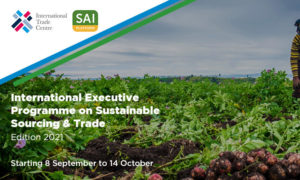
International Executive Programme on Sustainable Sourcing & Trade
ITC | 8 September – 14 October 2021 | Online
Latest News
- Trade and Environment at the World Trade Organization: State of Play and Entry Points | TESS | 5 April 2024
- Members make progress on trade and environmental sustainability outcomes for MC13 | WTO | 25 January 2024
- Trade, climate and finance: Breaking the silos to drive ambitious, inclusive action | World Economic Forum | 17 January 2024
- Recent Innovations in Trade and Sustainability Cooperation | TESS | 26 September 2023
- Advancing Inclusive Cooperation on Trade and Climate | TESS | 18 September 2023
- The Case for a Global Triangle Forum at the WTO | TESS | 13 September 2023
- WTO issues 2023 Annual Report | WTO | 20 July 2023
- IISD Trade and Sustainability Review, Volume 3, Issue 3 | IISD | 17 July 2023
- Harmful fisheries subsidies: Progress on “pivotal” WTO agreement disappoints one year on | Economist Impact | 14 June 2023
- Plastics Dialogue hails substantive progress, sets path towards achieving concrete results | WTO | 7 December 2022
- Members take stock of sustainability discussions, signal priorities for concrete action | WTO | 2 December 2022
- DG Okonjo-Iweala: Trade policy must catalyse green transformation, support climate adaptation | WTO | 19 September 2022
- DDG Ellard: Conclusion of Fisheries Agreement creates positive momentum at the WTO | WTO | 28 July 2022
- WTO members secure unprecedented package of trade outcomes at MC12 | WTO | 17 June 2022
- Members launch discussions under trade and environmental sustainability work plan for 2022 | WTO | 31 March 2022
- Where Do WTO Trade and Environmental Sustainability Initiatives Stand Today? | Aik Hoe Lim, Daniel Ramos & Gergana Kiskinova | 2 March 2022
- Sustainability standards are a powerful tool to protect biodiversity | UNCTAD | 24 January 2022
- IISD Trade and Sustainability Review – Volume 1, Issue 4 | IISD | November 2021
- General Council decides to postpone MC12 indefinitely | WTO | 26 November 2021
- Biodiversity and international trade policy primer: How does nature fit in the sustainable trade agenda? | TESS | 9 November 2021
- WTO’s Jean-Marie Paugam: Trade is part of the environmental solution | Borderlex | 5 October 2021
- Leveraging Trade to Support Climate Adaptation in Developing Countries | IISD | 4 October 2021
- Trade and environment at MC12: How can governments work together at the WTO to support a green and fair global economy? CUTS International Geneva | 30 September 2021
- The Trade and Climate Change Nexus : The Urgency and Opportunities for Developing Countries | World Bank | 29 September 2021
- Material Substitutes to Address Marine Plastic Pollution and Support a Circular Economy: Issues and Options for Trade Policymakers | UNCTAD | 16 September 2021
- Trade and Climate Change | World Bank | 7 September 2021
- Plastics pollution dialogue advances discussions, eyeing MC12 outcome | WTO | 21 June 2021
- Carbon and Controversy: Why we need global cooperation on border carbon adjustment | IISD | Nathalie Bernasconi & Aaron Cosbey | 18 May 2021
- Greening International Trade: Pathways Forward | Carolyn Deere Birkbeck | 3 May 2021
- Geneva Beat Plastic Pollution Dialogues – Plastics and Trade | GEN & partners | 4 February 2021
- How Stronger Trade Rules Can Help Us Meet Climate Goals | World Economic Forum | 22 September 2020
- WTO Deputy Director-General Wolff: “Trade policies have a huge potential to support climate action” | WTO | 17 September 2020
- 53 Ways to Reform Fossil Fuel Consumer Subsidies and Pricing | IISD | 18 August 2020
- Global Trade, the Pandemic, and Multilateral Directions | IISD | 14 July 2020
- GSI Event Places Trade and Climate Change at the Center of COVID-19 Recovery Efforts | IISD | 11 June 2020
- GENeva Environment Dialogues – WTO and The Committee on Trade and Environment | GEN | 12 May 2020
- Leadership Dialogue: Making Trade Work for the Environment, Prosperity and Resilience | WTO | 2 October 2018
- Report: Tackling Fossil Fuel Subsidies through International Trade Agreements | Climate Strategies | November 2017
- Fostering Green Exports through Voluntary Sustainability Standards in Developing Countries | UNCTAD
- The WTO Environmental Goods Agreement: Why Even A Small Step Forward Is a Good Step | World Bank | 22 September 2014
GEN Events
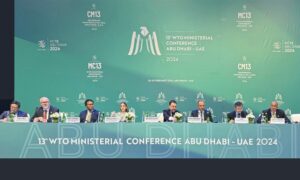
Plastics Pollution and Environmentally Sustainable Plastics Trade: Call for Action
WTO and Geneva Environment Network, 9 April 2024
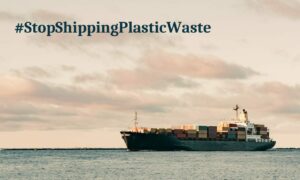
How Plastic Waste Shipments Undermine Real Solutions to Ocean Plastic Pollution
UN Ocean Conference Side Event | European Environmental Bureau, Break Free From Plastic, Geneva Environment Network | 28 June 2022
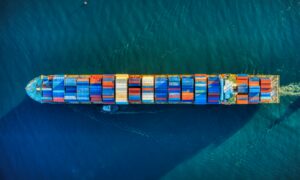
The Basel Plastics Amendments: The First Year Report Card
BRS COPs Side Event | Basel Action Network, with support of the Geneva Environment Network | 13 June 2022
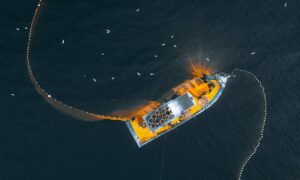
New Disciplines on Fisheries Subsidies to Achieve SDG14 and Improve Ocean Governance
Geneva Blue Talks | Portugal, Kenya, Geneva Environment Network | 24 May 2022
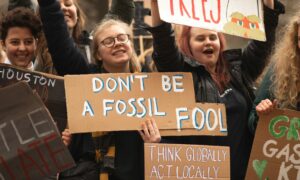
Subsidizing Fossil Fuels in Times of High Energy Prices | Fossil Fuel Subsidy Reform in Trade and Climate Discussions
International Institute for Sustainable Development, Friends of Fossil Fuel Subsidy Reform, Geneva Environment Network | 16 May 2022
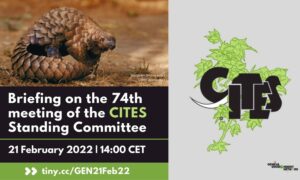
Briefing on the 74th meeting of the CITES Standing Committee
Convention on International Trade in Endangered Species of Wild Fauna and Flora, Geneva Environment Network | 21 February 2022
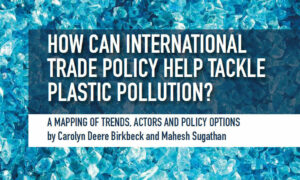
How Can International Trade Policy Help Tackle Plastic Pollution? | Publication Launch
Global Governance Centre at the Graduate Institute, Forum on Trade, Environment and the SDGs, United Nations Conference on Trade and Development, United Nations Environment Programme Environment and Trade Hub, Geneva Environment Network , Geneva Trade Platform | 17 June 2021
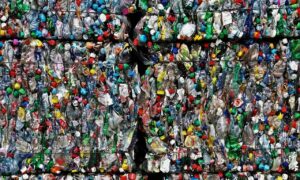
Plastics and Trade
Geneva Beat Plastic Pollution Dialogues | 4 February 2021
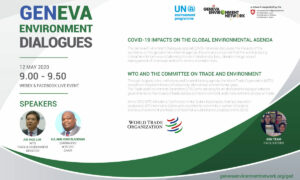
WTO and The Committee on Trade and Environment
GENeva Environment Dialogues | 12 May 2020
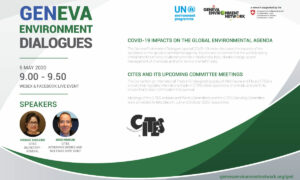
CITES and its Upcoming Committee Meetings
GENeva Environment Dialogues | 5 May 2020

IEH GUEST Lecture | The truth about plastics recycling and international trade
Geneva Environment Network | 8 May 2019
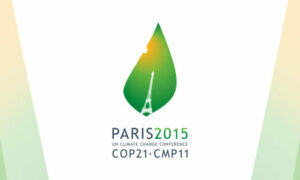
Climate Change COP21 and Beyond: Briefing on SDGs, INDCs and the contribution of the international trade community
Geneva Environment Network | 5 October 2015
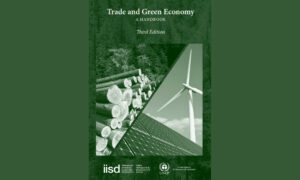
Trade and Green Economy High-Level Panel & Handbook Launch
Geneva Environment Network | 28 April 2015
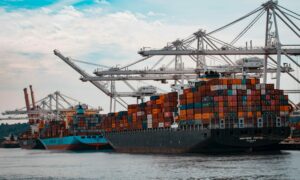
Green Economy & Trade | Trends, Challenges and Opportunities
Geneva Environment Network, UNEP Resources and Markets Branch | 8 May 2013

Brown-bag lunch | Tackling illegal wildlife trade
Geneva Environment Network | 6 May 2008

Biotechnology, trade and the environment
Geneva Environment Network | 19 May 2004

World Environment Day Roundtable | Illegal environmental trade
Geneva Environment Network | 5 June 2001

